
e-Informatica Software Engineering Journal
Scope & Guideline
Advancing software engineering through open access research.
Introduction
Aims and Scopes
- Software Development Methodologies:
The journal emphasizes various software development methodologies, including Agile, DevOps, and low-code platforms, exploring their effectiveness and impact on software quality and team collaboration. - Machine Learning and AI in Software Engineering:
A significant focus is placed on integrating machine learning and AI techniques into software engineering practices, including predictive modeling, automated testing, and code analysis, highlighting the evolving role of AI in improving software processes. - Code Quality and Maintenance:
The journal consistently addresses issues related to code quality, maintenance, and refactoring, including studies on code smells, anti-patterns, and legacy system migration, emphasizing the importance of sustainable software development. - Empirical Research and Case Studies:
A strong commitment to empirical research is evident, with numerous studies based on real-world data and case studies, providing insights into developer behavior, software evolution, and the practical application of theoretical concepts. - Systematic Reviews and Meta-Analyses:
The journal regularly publishes systematic literature reviews and meta-analyses, contributing to the consolidation of knowledge in software engineering and offering a comprehensive overview of existing research trends.
Trending and Emerging
- Integration of AI and Machine Learning:
There is a growing trend in the application of AI and machine learning techniques to various aspects of software engineering, such as code review, defect prediction, and performance enhancement, showcasing the industry's push towards intelligent software solutions. - Low-Code and No-Code Development Platforms:
The rise of low-code and no-code platforms is gaining attention, with research focusing on their impact on software development efficiency and accessibility for end-user developers, reflecting a significant shift in how software is created. - Ethics and Governance in AI Systems:
Recent themes have begun to address the ethical implications and governance of AI systems in software engineering, indicating a growing awareness of the importance of responsible AI development in the industry. - Microservices and Cloud Computing:
The transition to microservices architecture and cloud computing is increasingly examined, with studies focusing on migration challenges, performance optimization, and workload prediction, reflecting the industry's shift towards scalable and flexible solutions. - Developer Experience and Sentiment Analysis:
Research on developer experience, including sentiment analysis of developer interactions and experiences, is emerging as a vital area of study, emphasizing the importance of understanding developer needs and improving team dynamics.
Declining or Waning
- Traditional Software Engineering Practices:
There is a noticeable decrease in publications focusing on traditional software engineering practices, such as waterfall methodologies, as the field shifts towards more agile and adaptive approaches. - Basic Software Metrics and Measurement:
Research centered around basic software metrics and measurement techniques has become less frequent, possibly due to the increasing complexity of software systems and the need for more advanced metrics that capture modern challenges. - Static Code Analysis Techniques:
The focus on static code analysis techniques appears to be waning, replaced by more dynamic approaches that incorporate machine learning and AI, reflecting a shift in how developers approach code quality. - Human-Computer Interaction in Software Engineering:
Research related to human-computer interaction (HCI) within the context of software engineering is less prevalent, indicating a potential shift towards more technical aspects of software development over user-centered design. - Legacy System Studies:
While still relevant, studies specifically addressing legacy systems are appearing less frequently, possibly due to the industry's trend towards modernization and the adoption of microservices and cloud solutions.
Similar Journals

Software and Systems Modeling
Pioneering Insights in Software and SystemsSoftware and Systems Modeling is a premier journal published by Springer Heidelberg, dedicated to advancing the fields of software engineering, modeling, and systematic design. With an ISSN of 1619-1366 and an E-ISSN of 1619-1374, this journal has established itself as a critical resource for researchers and practitioners alike since its inception in 2005. The journal currently holds a Q1 quartile ranking in the Modeling and Simulation category and a Q2 ranking in Software, reflecting its influential contributions to the field. Its Scopus rankings further underscore its relevance, positioned at #55 in Modeling and Simulation and #139 in Software, with impressive percentiles of 83rd and 65th respectively. Although it does not currently offer open access, it remains an essential platform for disseminating innovative research and fostering dialogue among professionals in Germany and beyond. The journal’s objective is to publish high-quality articles that contribute to the understanding and development of software and systems modeling, ensuring ongoing advancements in this dynamic arena.

Software Impacts
Connecting Researchers and Practitioners in Software ScienceSoftware Impacts is an esteemed academic journal published by ELSEVIER, dedicated to advancing the field of software science and informing best practices in development and application. With an ISSN of 2665-9638, this journal facilitates the dissemination of impactful research from 2019 to 2024, making it a valuable resource for both established researchers and promising students alike. Although it currently holds a Q3 ranking in the category of Software and ranks at #270/407 in Scopus, it continues to contribute significantly to the discourse surrounding software-related innovations and methodologies. The journal’s open access policy enhances accessibility and encourages a broader readership, fostering an environment where critical discussions flourish. By addressing the ongoing challenges and advancements in software technology, Software Impacts plays a crucial role in shaping the future of software development and its applications globally.
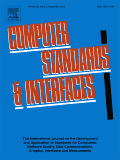
COMPUTER STANDARDS & INTERFACES
Connecting Technology, Law, and Standards for Tomorrow's Innovations.COMPUTER STANDARDS & INTERFACES is a prestigious journal published by Elsevier, dedicated to the intersection of technology, law, and standards in computing. With an impressive impact factor and categorized in the Q1 quartile across several relevant fields, including Computer Science Applications, Hardware and Architecture, and Software, this journal has established itself as a critical resource for researchers and professionals alike. Covering a comprehensive range of topics over its converged years from 1986 to 2025, it provides rigorous peer-reviewed articles and vital insights into the evolving landscape of computer standards. The journal's Scopus rankings affirm its significance with top percentiles in multiple categories, including a remarkable 12th rank in Social Sciences and Law. COMPUTER STANDARDS & INTERFACES welcomes contributions that push the boundaries of knowledge and foster discussions on best practices and innovations, making it an invaluable platform for students and seasoned researchers passionate about advancing the field.

ACM TRANSACTIONS ON SOFTWARE ENGINEERING AND METHODOLOGY
Shaping the Future of Software Through Rigorous MethodologyACM Transactions on Software Engineering and Methodology, published by the Association for Computing Machinery, is a leading journal in the field of software engineering, featuring cutting-edge research and methodologies that influence practices and advancements in the discipline. Established in 1992, this journal boasts an impressive Q1 ranking in Software for the year 2023, signaling its high impact and relevance within the academic community. With its strong Scopus rank (#126/407) and a solid 69th percentile, it serves as a critical platform for scholars, practitioners, and students alike, promoting the dissemination of innovative ideas and solutions that drive the software industry forward. Although it operates without an open access option, it consistently publishes peer-reviewed articles, technological advancements, and case studies that shape the future of software engineering. The journal's commitment to quality and excellence makes it an essential read for anyone keen on understanding the complexities and methodologies transforming the field.
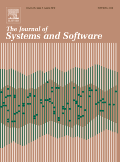
JOURNAL OF SYSTEMS AND SOFTWARE
Empowering Researchers with High-Impact Findings.JOURNAL OF SYSTEMS AND SOFTWARE, published by Elsevier Science Inc, is a premier academic journal that serves as a vital platform for the dissemination of cutting-edge research in the fields of software engineering, information systems, and hardware architecture. With an impressive impact factor and consistently ranking in the Q1 category across several relevant sectors, including hardware and architecture (ranked 33rd out of 177), information systems (ranked 72nd out of 394), and software (ranked 75th out of 407) as of 2023, this journal is recognized for its rigorous peer-review process and high-quality publications. Established in 1979, the journal has become an essential resource for researchers, professionals, and students looking to stay abreast of the latest advancements and emerging trends in systems and software. While the journal does not currently operate under an open-access model, it ensures wide visibility through its indexed publications and is dedicated to advancing scholarly discourse in computer science. With contributions from leading experts in the field, JOURNAL OF SYSTEMS AND SOFTWARE continues to shape the landscape of software and systems research.
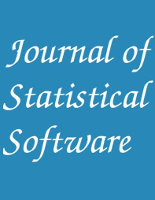
Journal of Statistical Software
Unlocking insights with premier statistical software research.Journal of Statistical Software, published by the esteemed Journal Statistical Software, stands as a premier platform for the dissemination of cutting-edge research in the fields of statistical software development, methodologies, and applications. With an impressive impact factor and consistently ranking in the Q1 quartile for Software, Statistics and Probability, and Statistics, Probability and Uncertainty as of 2023, this journal is recognized globally for its scholarly contributions and innovative content. The journal has been an Open Access publication since 1996, facilitating unrestricted access to high-quality research for a diverse audience, including researchers, professionals, and students. As the journal converges into its 28th volume in 2024, it continues to maintain a strong presence in key academic rankings—evidenced by its stellar Scopus rank, where it is placed in the top 5% of journals in its field. Located at UCLA Department of Statistics, in Los Angeles, this journal is dedicated to fostering the advancement of statistical software and its role in enhancing scientific research across multiple disciplines.
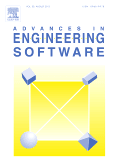
ADVANCES IN ENGINEERING SOFTWARE
Pioneering Research at the Intersection of Engineering and Software.ADVANCES IN ENGINEERING SOFTWARE, published by Elsevier Science Ltd, stands at the forefront of interdisciplinary research in the realms of engineering and software development. With an impressive impact factor reflected in its Q1 and Q2 rankings in the Engineering (Miscellaneous) and Software categories, respectively, this journal serves as an essential platform for researchers and practitioners alike to disseminate innovative findings and methodologies from 1982 to the present. Strategically positioned within the United Kingdom, it engages scholars, professionals, and students by publishing high-quality articles that emphasize advancements in software applications related to engineering challenges. Although it does not currently offer open access, the journal remains highly regarded within the academic community, consistently attracting impactful research and maintaining a commendable Scopus ranking within the top tiers of both general engineering and software disciplines. Explore the latest contributions to enhance your knowledge and stay updated on trailblazing developments in engineering software.
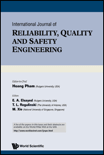
International Journal of Reliability Quality and Safety Engineering
Driving Progress in Engineering Reliability and QualityThe International Journal of Reliability Quality and Safety Engineering, published by World Scientific Publishing Co Pte Ltd, is a leading platform for disseminating cutting-edge research in the fields of reliability, quality, and safety engineering. With an impressive scope that spans across aerospace, electrical engineering, nuclear energy, and industrial manufacturing, this journal serves as a critical resource for researchers and professionals aiming to enhance system dependability and operational excellence. Indexed in Scopus, it holds a respectable Q3 ranking across various categories in 2023, reflecting its growing influence in the academic community. Although currently not open access, it provides ample opportunities for scholars to publish impactful studies from its extensive database, which has evolved since 1996. The journal's commitment to advancing knowledge in reliability and safety engineering makes it a pivotal resource for those dedicated to improving engineering practices and protocols worldwide.
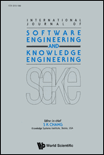
INTERNATIONAL JOURNAL OF SOFTWARE ENGINEERING AND KNOWLEDGE ENGINEERING
Navigating the Evolving Landscape of Software EngineeringThe INTERNATIONAL JOURNAL OF SOFTWARE ENGINEERING AND KNOWLEDGE ENGINEERING, published by WORLD SCIENTIFIC PUBL CO PTE LTD in Singapore, is a pivotal platform for disseminating cutting-edge research in the fields of software engineering and knowledge systems. With an ISSN of 0218-1940 and an E-ISSN of 1793-6403, this journal has been a reliable resource for scholars and practitioners since its inception in 1996. The journal is indexed across multiple prestigious databases, reflecting its relevance with a Category Quartile ranking of Q3 in both Computer Graphics and Computer Networks for 2023, and it maintains a steady trajectory of growth and scholarly contribution. Although not an Open Access journal, it is accessible through various academic institutions and libraries, ensuring researchers can engage with high-quality, peer-reviewed articles that explore advancements, theoretical developments, and practical applications in software and knowledge engineering. As it converges towards its end year of 2024, this journal continues to foster innovation and knowledge exchange, making it an essential resource for anyone invested in these dynamic fields.

Journal of Computer Languages
Driving Excellence in Software and NetworkingJournal of Computer Languages, published by ELSEVIER SCI LTD in the United Kingdom, serves as a crucial platform for advancing research and discussion in the fields of computer networks, human-computer interaction, and software development. With an ISSN of 2590-1184 and E-ISSN 2665-9182, this journal has established itself as a prominent resource within its category, achieving Q3 rankings in 2023 across its respective domains. As part of Scopus' indexed journals, it stands at impressive ranks of #152/395 in Computer Networks and Communications, #172/407 in Software, and #76/145 in Human-Computer Interaction, reflecting its relevance and contribution to the scholarly community. Operating under an open access model, the journal emphasizes accessibility and collaboration among researchers, professionals, and students keen on exploring innovative applications and advancements in computer languages. With a publication span extending from 2019 to 2024, the year-to-year growth reinforces its commitment to impacting both academia and industry significantly. Engage with cutting-edge research and foster your understanding in computer languages through this essential publication.